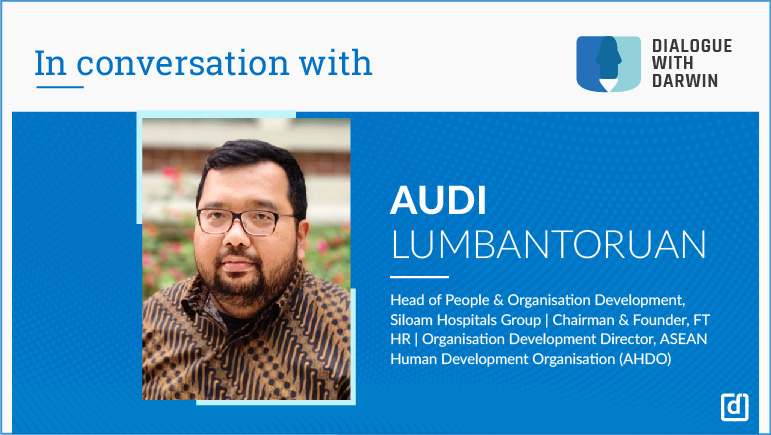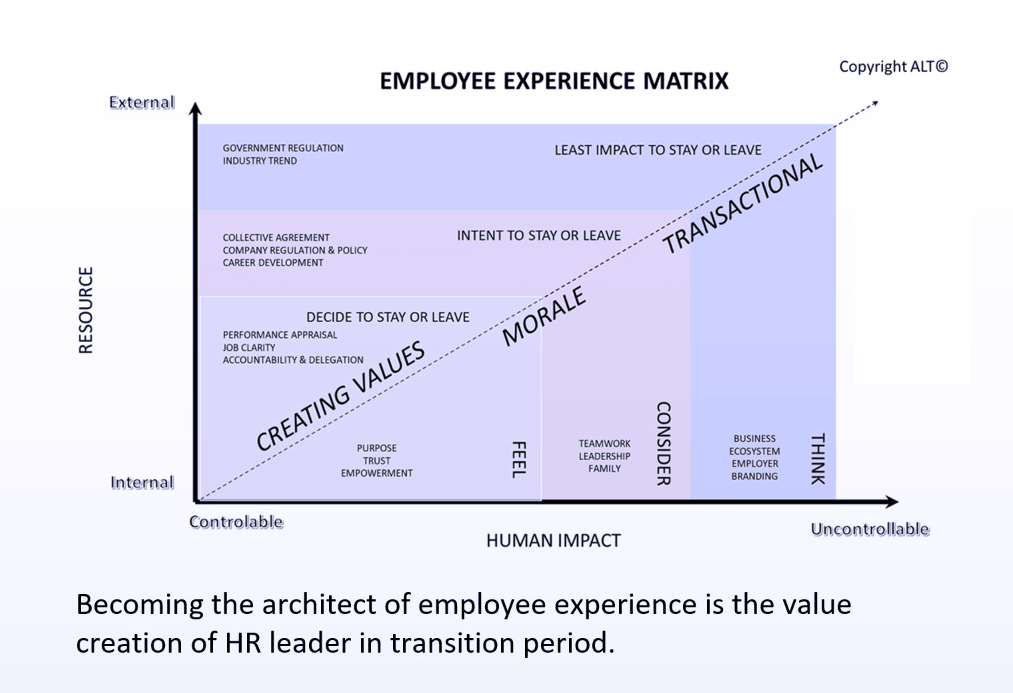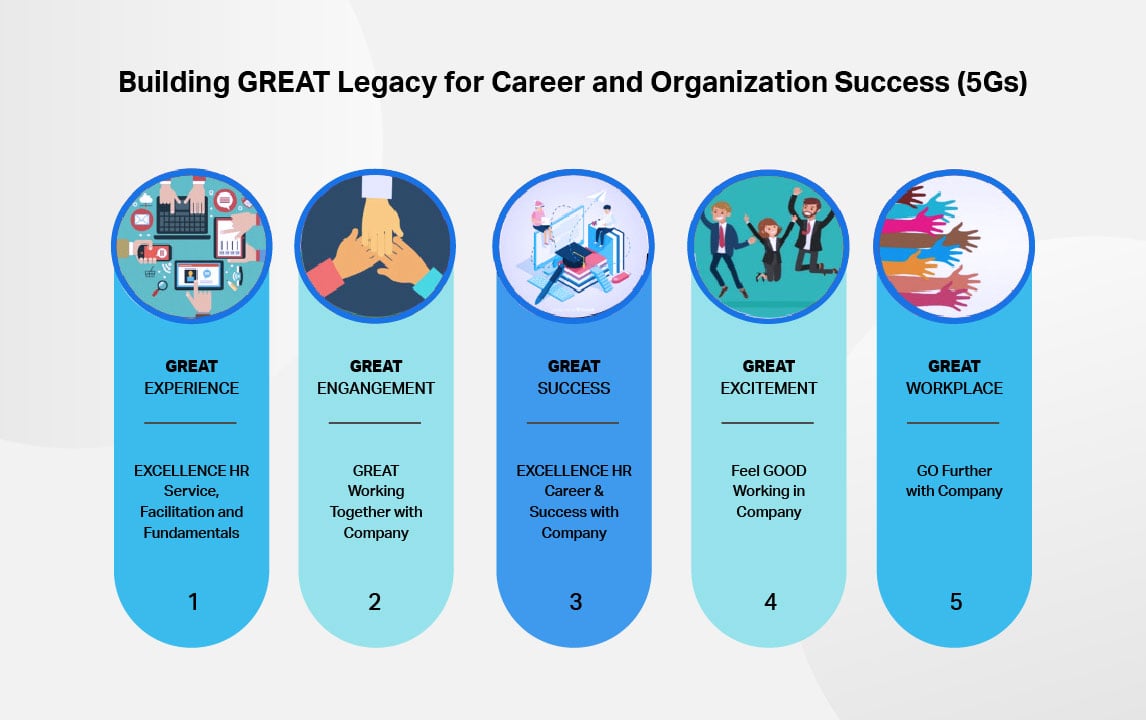

Six months since the COVID-19 pandemic first hit the world. How are organisations and businesses recovering and how has it changed the HR landscape? Audi Lumbantoruan, Head of People and Organization Development Capability of Siloam Hospitals Group in Indonesia and a well-known thought leader answers pertinent questions on HR transformation and how he sees its role change further in the foreseeable future.
Here are excerpts from the interview.
Q. What is the impact that this crisis has had on businesses and how has that created a shift in the HR function?
A. COVID-19 has changed everything. Its effect cannot be compared to previous pandemics and crises like the SARS. This time it has led the HR professionals to push beyond what is expected of them.
I would point out the top 4 things that it has changed for us. We changed how we deliver work with regards to team collaboration, way of working etc. We changed how we develop ourselves and our capabilities. Third, we changed the way we prioritised work. For example, people used to talk about time management. Now it has become energy management and stamina management. And fourth is we changed how we integrate work, life and play. Because now with remote working, all three are merged.
In this new world, the role is no longer HR Business Partner but HR Business Builder.
In this new world, the role is no longer HR Business Partner but HR Business Builder. The way I see it, we are the right kind of people and the right kind of team to facilitate that change, to facilitate how our leaders can think beyond what they are supposed to do.
Q. What are the top three things that HRs have to now gear up to solve within the next 6 months?
A. First, as an HR leader, you need to build communication to build trust with your business owner, stakeholders and the management team. Because with so much uncertainty, both the employees and the leaders are aligned only on one thing and that is commitment towards ensuring business continuity and making work both enjoyable and productive.
Second, HRs need to understand the business model and where the money comes from to expand the avenues of revenue collection. For example, in our case, the HR team had to brainstorm on how to bring the business back and ultimately, we came up with a new service by partnering with big corporates.
HRs must take this opportunity to not only become a facilitator but empathise with their employees and understand what they are really going through.
Third and one of the most critical aspects is the employees. Everyone is confused about how they will do their job, and how they will deliver the work. So HRs must take this opportunity to not only become a facilitator but empathise with their employees and understand what they are really going through. For doctors and nurses who are getting infected with COVID because of their everyday work, we are providing them with good medical care, boarding houses to quarantine themselves and expert counselling on mental healing.
Q. How can HR professionals reset their strategies to cater to these priorities?
A. By becoming more human! Don’t just use assumptions and theories. In the end it’s all about common sense. In this crisis time, we are actually responsible, not just for the employees but their families too. For example, we are rotating a lot of top doctors, directors etc because of the condition and my concern is that when we are sending them to highly infectious areas, we feel very responsible for them. Having said that, at least in our industry which is healthcare, any decision we take, we need to think about it again. Especially when it comes to hiring new talent. Because after this crisis all the HRs have become very cost conscious and are thinking about profitability, hence more precision is needed.
Q. What is the role of technology in helping HRs resolve these new priorities?
A. Irrespective of COVID, whenever a company adopts digital transformation, it should think about the value that is being added because of it. Digital transformation is not just about using fancy software or using something to make us look more advanced, but the technology should be able to accelerate the business processes. Digital transformation is an enabler so that people can do more and be more.
Technology should be able to accelerate the business processes and add value.
The way I see it, in the next 3-5 years things will get more exciting with regards to HR technology. We have slowly started unfreezing our recruitment process and while recruiting a senior professional using digital platforms, she said this is the first time in her life where everything is digital! Even talent identification and assessment will be virtual in the future. I also believe we will see VR technology actively applied in recruitment space in the future.
Q. How do you see the workplace evolving in the next one year? Are there any initiatives that Siloam Hospitals is taking to meet those future trends that you foresee?
A. Let me start with a general view first. In the case of Indonesia market, when I interact with business leaders, they tell me the monetary situation is quite gloomy. The most important thing for organisations today is to continue running. This is where the HR has to become a business builder and realise the critical role they are playing. They should take charge of the change management process, an area they are masters of, and steer the CXOs in revamping their business strategies.
HR should take charge of the change management process, an area they are masters of, and steer the CXOs in revamping their business strategies.
Talk about what can be done three months from now, 6 months or 12 months from now. Understand what really matters to the business and help the leadership to really facilitate change. Help them connect with leaders outside their organisation and build their confidence. Because they don't have to just build a model that needs to survive now but also sustain the business in the next 1-3 years.
And last but definitely not the least, we have to think of our employees. So in my hospital, we have ensured that the workplace is safe and hygienic. That is a non negotiable. Everyone must first do that. Then we have to fix what we call the operating rhythm. This basically means how we do the scheduling of our staff. We have to think about how effective that is and change it wherever necessary. We have to change how we collaborate with our team members. The next initiative would be to ensure our doctors’ and nurses’ peace of mind. Because everyday they strive to save lives putting themselves at risk and staying away from their families. We are responsible for their lives!
 In the end, we have to do what is human, what is absolutely necessary and what would bring about real success to the business, workplace and employees. The best HR is that which is aligned with the business.
In the end, we have to do what is human, what is absolutely necessary and what would bring about real success to the business, workplace and employees. The best HR is that which is aligned with the business.

Watch the full interview here:


Speak Your Mind